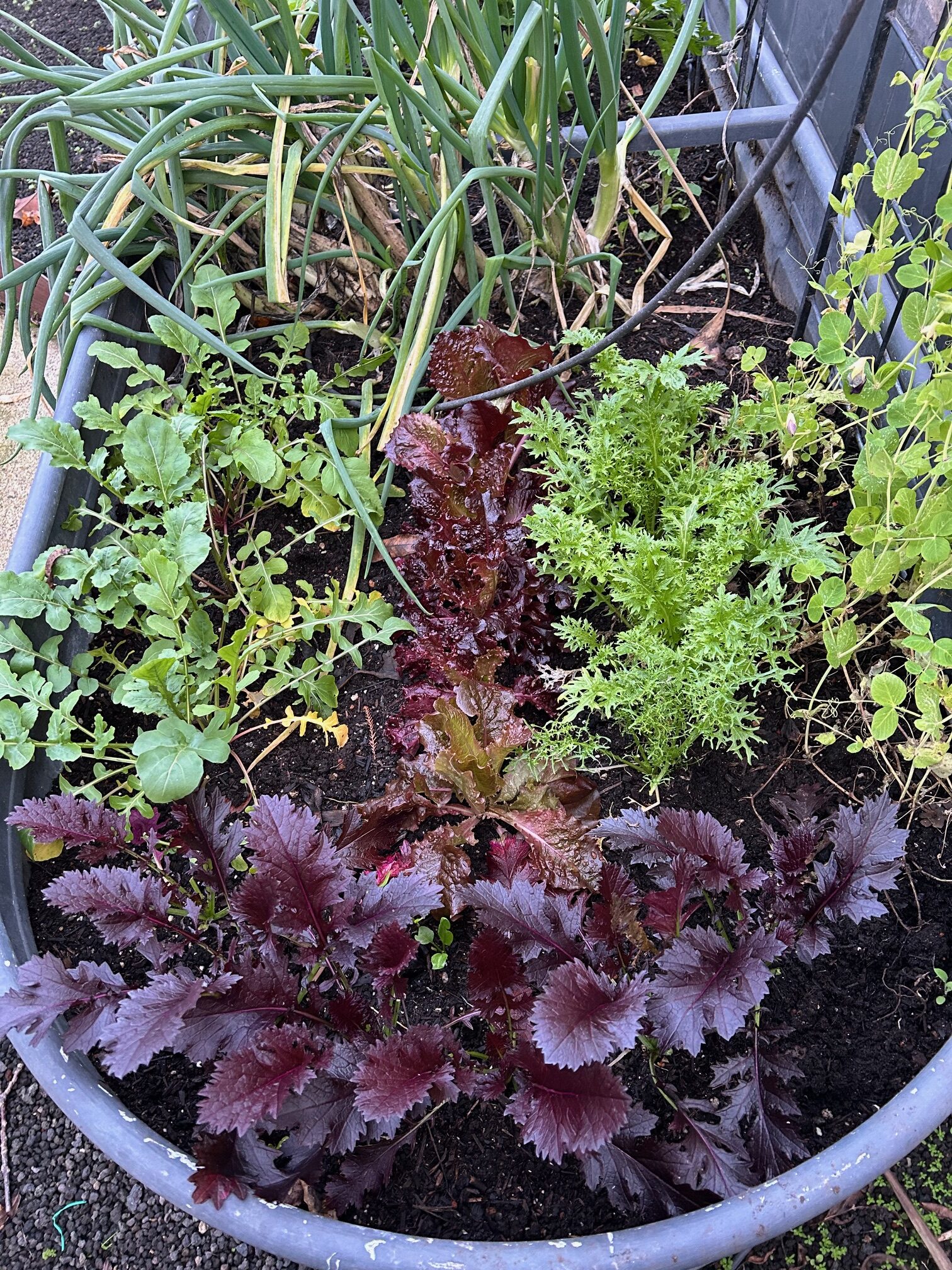Some years ago I removed a stand of bamboo and replaced it with two 3’ x 8’ livestock troughs that I converted to raised garden beds. I’ve always been a gardening enthusiast, a self-confessed hortisexual who loves plants, but our home is shaded by big trees so a large vegetable garden has never been workable. With the removal of the bamboo, however, a seasonally sunny spot opened up outside our front door, and I created a kitchen garden.
It turns out that two 3’ x 8’ garden beds produce more food than two old people can eat, particularly the way I grow veggies, which is to pack them together and let them mingle. That, fine soil, and compost yield us greens, fruits and vegetables year-round. When there’s more than we can eat, we share it with others.
In the fall and winter, I grow lots of greens: Mizuna, Lettuce, Snow Peas, Cabbage, Broccoli, Kale, Pak Choi, Arugula, Spinach, Celery, and Green Onions. In the spring and summer, it’s Tomatoes, Eggplant, Cucumber, Zucchini, Beans, Peppers and whatever strikes my fancy. The insects get their share, but it’s minimal; I don’t use any pesticides or bug killers.
That the garden grows food is of course delightful; a fresh salad of young greens dressed with a French-style mustard, garlic, olive oil, and white balsamic dressing is fabulous, but the joys of a kitchen garden go way beyond that. As is true of caring for gardens in general, but particularly true of a kitchen garden, is the way in which it keeps me rooted in seasonal cycles and the rhythms of nature.
Be it heat, cold, wind or rain, insects, birds, and even the occasional grazing squirrel, a kitchen garden just outside the front door keeps me alert to world and its changes. In my daily comings and goings I pass the planters time and time again. I can and do observe how everything is growing, or in some cases not. Growing plants is a way of reckoning time, and before mechanical clocks came to dominate human life and superseded the authority of nature, the cycles of life and the changing of seasons were humanity’s clocks. If you so choose, they still are.
I’m not entirely sure when life begins and ends. Is a freshly picked tomato still alive? Many plants retain their life energy even when separated into pieces; it’s the magic of the plant kingdom that the cut stem of a tomato plant will root and grow in soil. Whatever the case, eating food fresh from the garden feels different than pulling produce out of the refrigerator that’s been sitting there for days on end.
I myself am an admitted grazer. When the snow peas mature, only a portion ever make it into the house. So too some young Broccoli, Mizuna, and crisp Cucumbers. The sweetness and clarity of flavor of just picked veggies are remarkable. This helps me understand the logic of nature: to attend to and consume is the underpinning of earth’s living system. So it is from the smallest to the largest animals. A good case can be made that the evolutionary development of our sensory apparatus – sight, taste, smell, and so on – was about food, and that culture, dining habits, and cooking are merely sophisticated elaborations on a theme.
A product of modernity, I harbor no illusions of self-sufficiency, but our kitchen garden keeps me humble and happy.






Be First to Comment